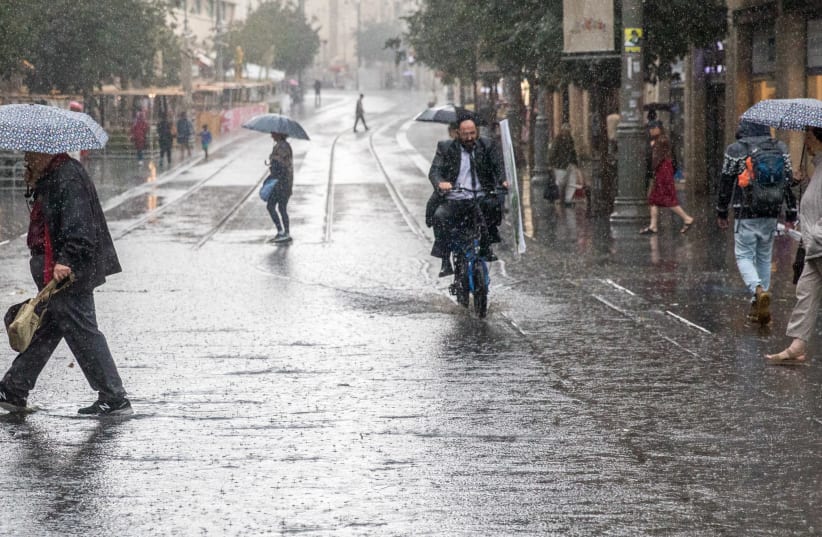
According to Amos Porat of the Israel Meteorological Service, the rainy season generally lasts from late October through May. Although the rains arrived slightly earlier than expected this year, he said there is no cause for concern.“Once every few years we get rainfalls in early October, and sometimes even in late September, but it usually begins during the second half of October,” he said by phone on Monday. “It’s a bit earlier this year, but not particularly unusual.”The Israel Meteorological Service said 7 mm. of rain fell in the most affected regions. It forecasted scattered showers to continue until Tuesday. By Wednesday, the rain is expected to recede, with temperatures returning to normal.The deluge is good news for the Lake Kinneret, which reached its lowest levels in nearly a century this year following an ongoing drought in the North.At the end of May, the basin held less than nine million cubic meters of usable water – the worst situation since 1920.
